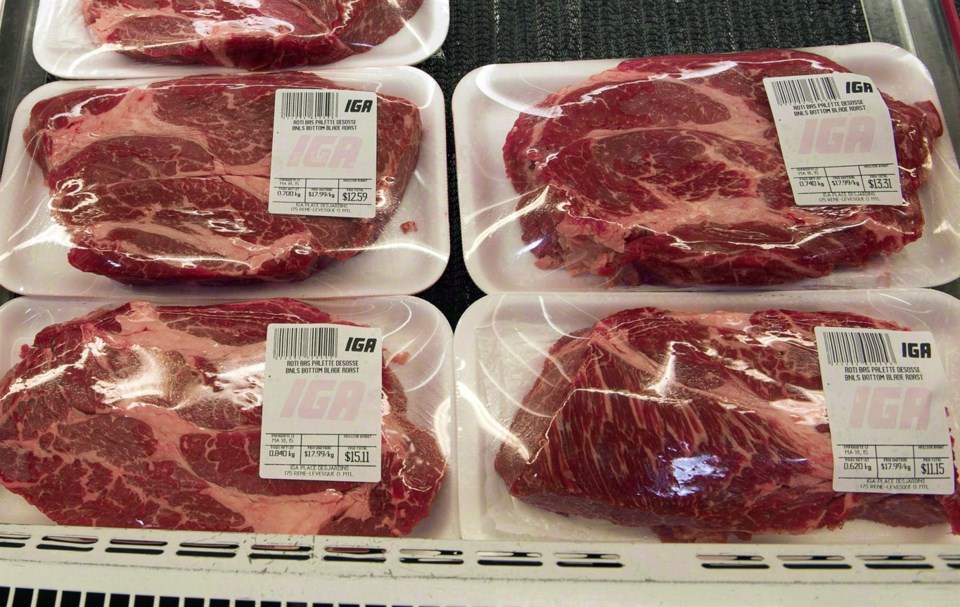Laughter ran amok at the Masonic Lodge on June 14 for the final monthly Cochrane IDEAS event of the season, with no shortage of puns when it came to the topic of whether or not society should support a "substantial reduction and eventual elimination of mass-produced meat consumption."
With pun-y warnings from moderator Andy Marshall to not "hog" too much time on the mic and to be mindful to "prod" others with strong opinions, the panel featured Robyn Slater and Heinz Unger advocating for vegetarianism and cattle rancher Erik Butters and David Trout advocating to maintain support for the cattle ranching and meat production industry in Alberta.
Slater delivered her personal narrative on becoming vegetarian in her early teens, as she became interested in global cuisines and traditions and began to travel. Her experiences and efforts led her on a lifelong path of seeking out fresh, whole foods and produce and a menu so full with grains, veggies and fruits that there was no need for meat.
Butters advocated for the need to protect the cattle production industry – a staple to the Alberta economy that produces a high-quality product and is a sustainable model due to the production of cattle on lands that would be of too poor condition to produce much else.
"It hurts me to the bone to have our industry attacked," said Butters, whose family homesteaded in the area in the 1930s, adding that he finds the movement to decrease meat to be "misguided" and "bogus" and that many vegetable crops would require the same or more water for production as compared to cattle.
He also joked that the trend to move away from meat is what he calls "Guilt Mitigation Manoeveur" – a feeble attempt of environementalism to compensate for other bad behaviours, such as leading a lifestyle that expends too many fossil fuels. He added that eliminating meat would lead to shipping in more product from warmer climates.
Unger argued that there are more sustainable crops such as pulses, beans and lentils that contain higher quantities of protein and require less water to produce.
He also discussed the abundance of higher quality meat alternatives on the market and that society is changing, with those under age 35 eating far less meat than generations past. He pointed to a rise in vegan bodybuilders and to some of the world's fittest long-distance runners, the Kenyans and Ethiopians, who are primarily vegetarian.
Trout spoke to the rise in fear mongering that surrounds the meat debate and made jokes about high fiber veggie-based diets producing more methane.
Questions from the audience touched on concerns over the addition of growth hormones to meat, the "real food" qualities of some vegan or vegetarian products and the buzz about organic.
Marshall said of the estimated 55 in attendance, a show of hands revealed that only around five did not eat meat, but of the meat eaters the majority had made strides in recent years to consume less meat.
Visit cochraneideasgroup.ca to learn more. The group will head into its 20th season this September.




